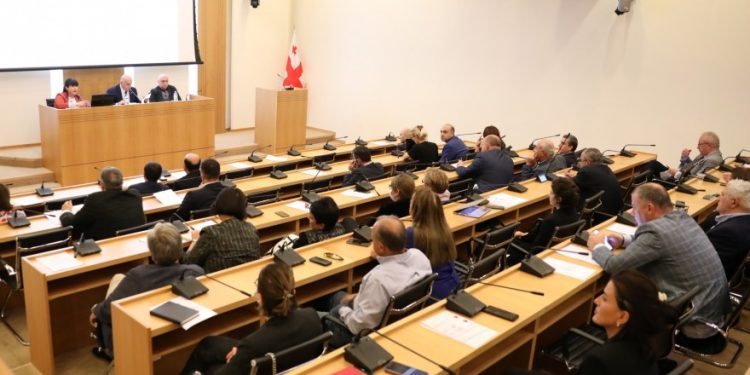The Scientific-Advisory Council on the Health Facilitation and Disease Prevention at the Health Care and Social Issues Committee discussed the progress of the implementation of the Law on Tobacco Control.
The First Deputy Minister of Health, Tamar Gabunia, introduced the outcomes of the implementation of the law and dwelt on the accompanying challenges.
The speaker focused on the results four years since the entry into force of the tobacco legislation in Georgia.
“As a result, during these four years, the smoking rate decreased by 4% in the general population and by 10% among smokers. The number of consumed tobacco products has decreased. Surveys show that the majority of the population is satisfied with the implementation of the law.”
As Gabunia notes, monitoring of law enforcement is actively carried out.
The rapporteur expanded on the challenges and stated that the duty-free cigarette trade, the influence of the tobacco industry, and e-cigarettes, which, according to experts can be even more harmful to human health, are still important topics.
As participants note, in order to have a tobacco-free country and save tens of thousands of lives, the educational campaign should have a systematic character, the monitoring of the enforcement of the law should be maintained and strengthened, and, the sale of tobacco products without plain packaging should be prohibited specifically within the period defined by the law (January 1, 2023).
In addition to the MPs, the event was attended by the representatives of the Health Ministry, National Center for Disease Control and Public Health, Ministry of Internal Affairs, Patrol Police, Revenue Service, WHO, professional associations, governmental, international, and non-governmental organizations, and field experts.














